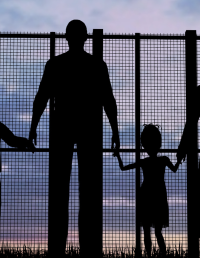New toolkit aims to ensure immigrant youth have access to education services
Resource provides research on legal rights and strategies to advocate for unaccompanied immigrant youth in or recently released from federal immigration custody
OAKLAND — A new toolkit released today by the National Center for Youth Law gives advocates the tools they need to ensure that young people in federal immigration custody, as well as those recently released from federal custody, have meaningful access to the quality education to which they are entitled.
"Educational Advocacy for Unaccompanied Immigrant Youth in California," available for download here, provides advocates, service providers, and others with critical context around unaccompanied children in California, a summary of relevant laws and policies, and guidance on how to effectively leverage the existing protections.
Unaccompanied children in federal immigration custody are often prohibited from leaving the facilities in which they're detained, which can severely impact their ability to access quality education services. Even unaccompanied immigrant children who are living in the community often encounter barriers such as difficulty enrolling in school, accessing English learner programs, or obtaining disability-related services.
"Access to education is a fundamental human right and vital to a child's ability to thrive, yet unaccompanied immigrant children face numerous obstacles in accessing education,” said Melissa Adamson, an attorney at the National Center for Youth Law and one of the toolkit's authors. “For immigrant children, a quality education can be especially impactful, both providing them with tools for learning and for some, coping with trauma. This toolkit is the outgrowth of years of hearing directly from detained immigrant youth who were frustrated by their lack of access to meaningful education, and from receiving questions from attorneys and other service providers about the educational rights of their clients."
"We have school here, but it is not very good," said a 13-year-old boy who was detained in federal immigration custody in California in 2022. "They just bring us things to color or draw but we want to learn English and English grammar… I came to the United States in hopes of making my life better, but I feel like I have wasted so much time here and it is time for me to go to real school."
The toolkit serves as a resource to help reduce barriers to education. It includes:
- An overview of the population of unaccompanied children in federal immigration custody, as well as the different placements in federal custody in which unaccompanied children live
- Information about unaccompanied children in federal immigration custody in California;
- A summary of the federal and state legal requirements related to unaccompanied children’s educational rights; and
- An outline of unaccompanied children’s challenges accessing education and accompanying opportunities for advocates to address these challenges.
Education is the necessary foundation upon which children can build the lives that they envision for themselves. It's critical that advocates for unaccompanied children have the resources they need to ensure that these young people can access the education they deserve.
For more information, or to speak to one of the toolkit's authors, please email immigration@youthlaw.org.





